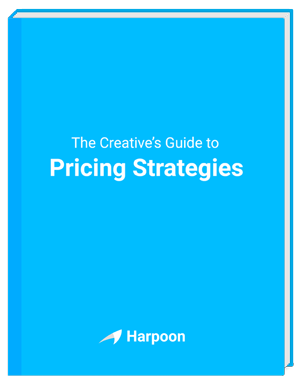
I love running a freelance writing business, but there are a lot of things I wish I knew when I had started. I left the world of full-time other-people employment in May 2010, and since I haven't driven myself into bankruptcy I must be doing something right. I believe now I have enough experience to look back and give some helpful tips for people who want to try out this whole freelance writing gig.
Most freelancers in my experience are pretty decent at whatever craft they want to practice. What makes or breaks a freelancer is an understanding of business. The art of getting clients and negotiating rates is new for most people, and can be uncomfortable if you're used to getting paid what you're told you'll be paid. Successful freelancing requires you to take on the mindset of a business.

Growing the Mindset
In its broadest sense, a freelance writer is an independent contractor who writes for other people. They are not bound to working for a single employer, nor are they expected to. Freelancers are responsible for choosing clients, rates, marketing, writing specializations, negotiations, and a lot more.
In short, you're becoming the CEO of your own business. Congratulations! And as a CEO, that means you need to have your mind on the money more than the writing. Pardon my bluntness, but if you decide to make freelance writing your full-time profession there are two questions you'll have to answer:
- How will I eat today?
- How will I eat a month from now?
Your first business goal is to get enough regular income that you can answer these questions firmly. Not “I'll just get more clients”, but “I will be working X project with Y client with pay Z, payable on Q date.”
There are no guarantees in freelancing. It's an adventure that I often refer to as jumping off the cliff. You can learn to fly, but it takes some time to get your wings. That's why it's important to have some cushion when you start.
.png)
Safety Nets
Before you jump, it's good to have some sort of a safety net in case you don't get it right the first time. You could save up money for six months of bills before quitting. If you're lucky, your spouse could work full time while you figure out the ropes. That's what happened to me, and then he eventually jumped off the bridge himself to help me once I got things running.
However you do it, you need a cushion so you can try bold things without worrying about the two questions. If you need to save up, you can still work on the other fundamental things you need to for your success.
Blog Posts/Article Writing
These can range from 250 words to 2000+ words. Usually, they’re written in a conversational style and are part of a company’s content marketing campaign. They often entertain or inform.
Copywriting
Copywriting is the art of writing advertisements. It's quite lucrative if you can get good at it. It is persuasive writing meant to get the reader to perform a certain action, like buying a product or giving personal information. Copywriting can cross over into many different writing formats. I think every freelance writer should learn some basic copywriting skills because it is so useful in other fields.
Ebooks and White Papers
Electronic books are another niche, and there are many different kinds and styles. Successful ebook writers need to be good at editing and proofing, project management, and getting clients to explain what they want. White papers are technical papers on complex topics and can be as long as an ebook. They're great for the technically-minded
Press Releases
Press releases are often used by companies to get news about them into the media. Writing them is an art unto itself. It's a mix of copywriting and journalism that has to catch the attention of newspaper editors.
Web Pages
Web page writing doesn't mean you need to know how to code, but if you have an eye for good web design, clear writing, and know the basic ins and outs of a CMS system like WordPress, you can make a good living with web pages. And if you know web languages like HTML and CSS, that's even better.
There are other specialties too, like academic writing, legal writing, technical writing, grant writing, and translations. Beyond the general type of writing, there are also topic specializations. Some people, like myself, don't have a specialization. Some others only want to write in one field. Specialization can earn you a lot, but you need to choose a lucrative niche.
What Should I Write?
This is one of the questions that you’ll need to be able to answer on your first day. It helps to prepare an answer beforehand, rather than saying ‘everything,’ because saying ‘everything’ opens you up to an interesting world.
I made this mistake. I just declared myself to be a writer, and then spun my wheels for about two years trying to find my niche. It really helps to have a specialization. That said, you may not know all of the different kinds of writing there are out there. Here's a brief list of the major non-fiction types you'll see:
How Much Should I Charge?
This is a really tricky topic, but there are some fundamentals. Each day's hours are going to be divided between “billable hours” and “non-billable hours”. Billable hours get you paid. Non-billable hours do not. Let's say that you plan on splitting an 8 hour work day in half between them.
5 workdays * 4 hours per day * 4 weeks a month = 80 billable hours
If you need to earn $2000 a month to keep yourself afloat, that means you need to charge:
$2000 / 80 = $25 per hour
But in reality, a quarter of what you make is going to have to be paid in taxes. To net $2000 after taxes, you really need $2666 a month:
$2666 / 80 = $33.33 per hour
At 4 billable hours a day, that means you need to make the equivalent of $133 every working day. But there is a further complication. Writers can be paid by the hour, but they're often paid by the word. That can confuse new writers. Worse, job boards often have a lot of unscrupulous clients that charge by the word at rates way lower than what you need to make your business run.
Now for some bad news. The fact of the matter is that if you're not writing for a corporation or a magazine that has the budget to pay pro writers, you're going to get paid less than the “real” rates. Most pro writers will not write for anything less than $0.20 per word, or around $40 per hour. The jobs you find online aren't going to pay that.
If you plan on asking to get paid by the word, shoot for no less than $0.05 per word. For a 500 word article, that's $25. If you can turn out four of those in an hour, that's $100. With the example above, you'd need to work a few more hours in the day to cover expenses, but you could make enough to live on.
Remember, the goal isn't to make a lot of money at first. The first goal is to make enough to live on after jumping off the cliff. However, I will say that five cents per word is no place to stay and you should shoot for higher. Do not go lower, no matter what the client says. Clients that leave you for that aren't worth your time.
As a freelancer, you should be bold about sticking to your rates. It shows professionalism and it shows that you know the value of your work. However, you'll need to back up your rates by convincing clients that your rates are worth it. There are several ways you can do that:
- Quality samples
- Years in the business
- Specializing
- Prior experience in a niche
- Declaring your rate clearly and why (more important than you might think!)
- Your confidence level (Also more important than you might think!)
- The type of client you're approaching (Corporations and magazines can pay more)
Bottom line, don't undercharge for your services. It will turn freelance writing into a miserable slog.
1.png)
You will also need a way to receive payment before getting clients. The easy way to do this is to use an online invoicing tool like Harpoon, which allows you to create a client, create an invoice for a downpayment, and receive payment online. If you are using a job board site, you might be forced to use their system for payment (at least for the first job), and they'll take a cut out of your fees.
Where Do I Find My First Job?
You have a lot of options when you’re searching for your first freelance writing job, and each of those options has advantages and disadvantages:
Networking Meetings
Your area most likely has networking meetings where local businesses get together. I got my very first job going to one of these networking meetings. It was for a pressure washer that needed a lot of Wordpress and SEO work. It took me a week to go from nothing to money through networking. I presented myself as a writer, solicited my services, and gave a clear rate.
LinkedIn is another great place to network online and negotiate directly with clients. It's also a great place to get information about potential clients.
As a note: Business cards are still used in face-to-face meetings. It can be helpful to have them before going this route. It's easier than writing down contact information, and you'll look more professional.
The jobs you set up through networking may need contracts drawn up. Every freelancer needs to become familiar enough with contracts and contract law to protect themselves. Freelancersunion.org has guides on freelancing contracts (free registration required.)
Online Freelance Marketplaces
There are job boards where people who need freelance writers can post their projects. The biggest one right now is Upwork. A huge number of jobs are posted there every single day. It's my primary site for work.
Upwork is akin to the Wild West when it comes to freelance writing. You can find high-end, high-paying jobs but you will be much more likely to find the bottom of the barrel. Upwork also charges a hefty fee for their service, 10% of what you make. But Upwork and other job boards can teach you some skills.
To get a job, you have to write a proposal that wows the client. I like to think of it as business seduction. Writing proposals translates very well to writing query letters for online and offline publications. You'll also develop a sixth sense for bad clients and job offers.
Some freelancers will tell you to stay away from job boards, and they have a point. You can't negotiate article rights, the pay is lower than what you can get in other ways, and you're stuck using their system. But for a new freelancer, it's a great compromise.
Magazines and Books
If you want to go straight to good money and are willing to dive into the deep end of contracts and query letters, Writer’s Digest is your friend. Writing for magazines and building a stable of clients is the way to truly serious money. However, there is one major disadvantage. Instead of clients outlining a job that you bid on, you have to persuade the editor that your topic is worth putting into a magazine. This is called pitching an article. I really recommend getting a copy of this year's Writer's Digest and reading the front. That will teach you quite a bit about approaching magazines and book publishers.
You'll definitely get paid more, but the length of time that it takes you to get paid is usually longer. You can sometimes wait months between the time that you submit the article and the time that you get paid for it. You will also retain more rights for your work, which is important if you decide to jump into this level.
Cold Calling / Email
I saved the most dreaded one for last. This is somewhat like playing with an entire deck of wild cards, but if you’ve got the chops for writing query letters and sales letters, you can really bring it home. If you like talking on the phone and have worked in sales, your great phone voice can work for you here, too.
Now, this is one of the places where the introverts will usually balk and start using other methods. It’s one of the reasons that I’m still using Upwork as my primary marketing method. I prefer to let the jobs come to me rather than pitching ideas. Your tastes may vary.
Portfolios
The last thing you're going to need is a portfolio. A portfolio is a set of samples that you send to clients so they can gauge your abilities. This is often a catch-22 in the beginning. How can you make a portfolio if you don't have any clips?
It's a simple solution. Just write some. Start writing the types of articles that you want to do more of during your non-billable hour time. Polish the articles as much as you can so that you look great to the clients. Shoot for 3-5 pieces for each niche you want to try.
1.png)
If the client asks you to write a sample piece for them related to their project don't do it unless they will pay you for it! This is called spec work and it is often used to scam writers.
Hopefully, I haven't scared you off from freelancing and given enough to get you started on your own journey. You should now have some ideas about:
- What am I going to write?
- How much should I charge?
- How am I going to get paid?
- Where am I getting my first job?
- What should I put in my portfolio?
I hope that you enjoyed this article. Being a freelance writer has been extremely challenging and rewarding for me. I'd never trade it back for normal employment. If you’ve got the right mindset, that of a writer and a business owner, you can go far in this profession.
Enjoy the article? Let us know with a like or retweet:
Getting started as a freelance writer? Here are some tips from someone who has been there: https://t.co/jC2IIqWABg pic.twitter.com/2lTw2THoiW
— Harpoon (@HarpoonApp) April 26, 2016







